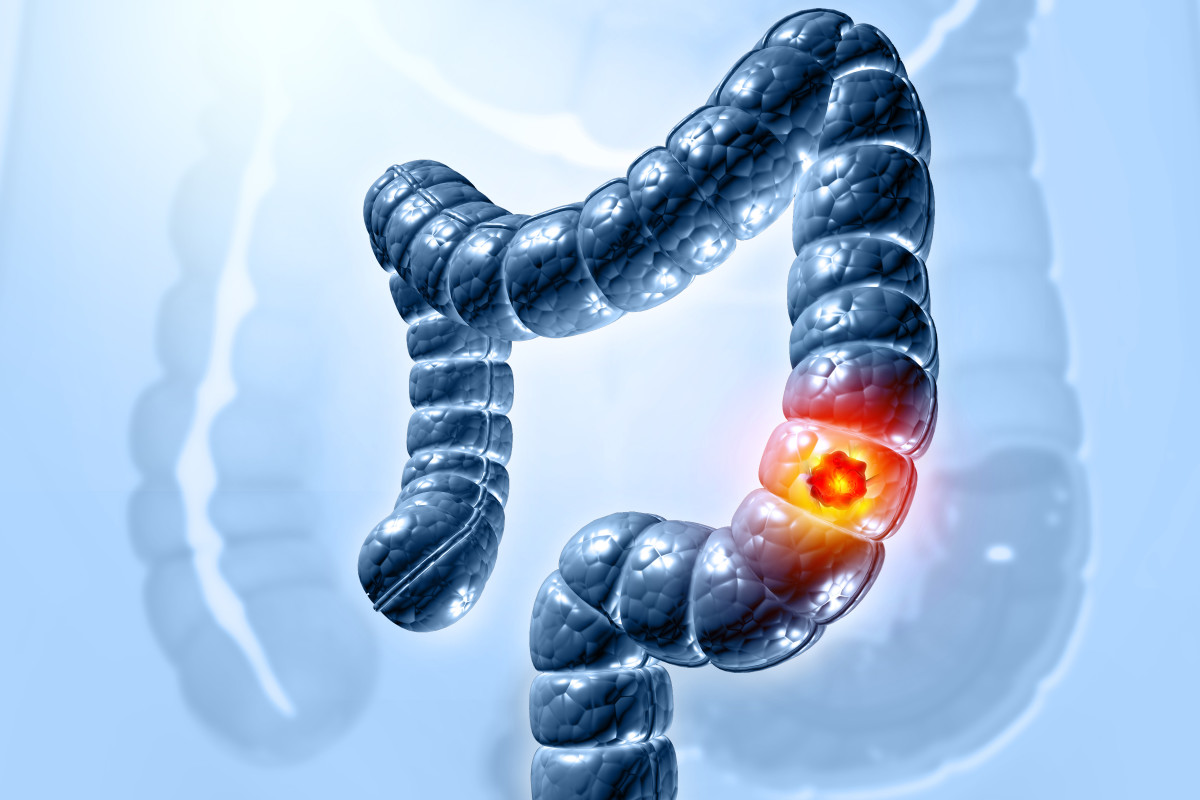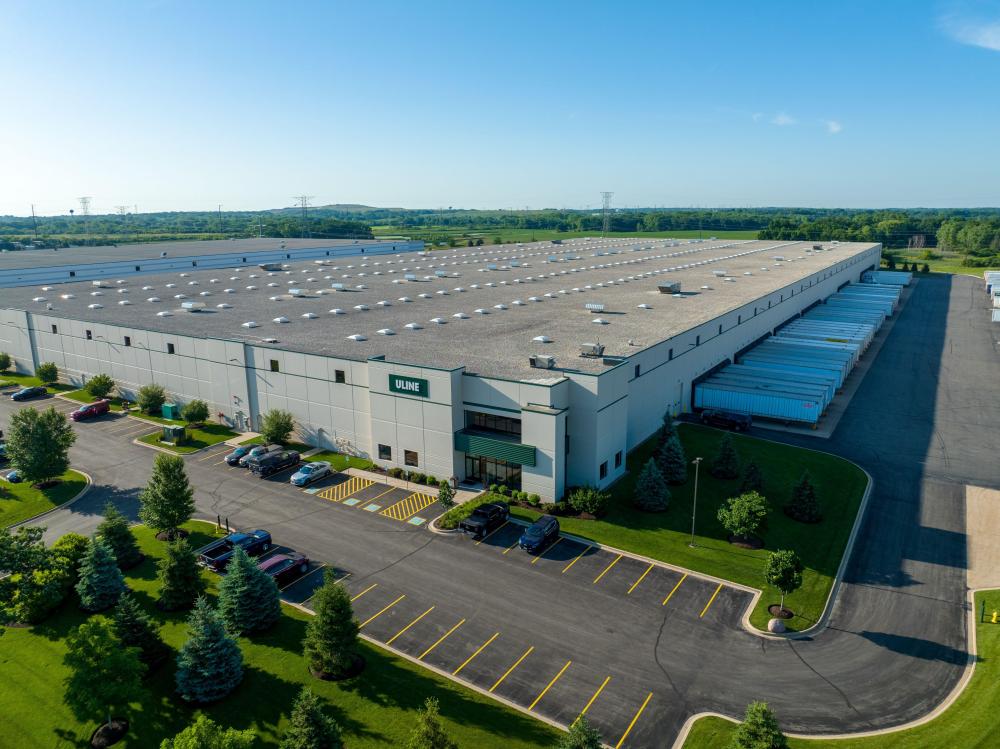
The words “increase your cancer risk” are scary. Most (if not all) of us either are or know someone who’s had cancer, and we’ve seen how terrifying the disease is.
Plus, it seems like just about anything can lead to cancer, from foods to too much sun to age. Having a cancer diagnosis is not a personal failure, but it’s still so easy and understandable to feel hopeless in the midst of it all.
With that said, studies suggest that too much and too little of a particular nutrient may increase the risk of colorectal cancer and other types of cancer, and we know that you want to be as well-informed as possible to stay safe. Here’s what to know.
Related: The Early Colon Cancer Sign Most People Miss, According to Gastroenterologists
The Nutrient That Can Play a Role in Colon Cancer Risk
The nutrient in question is iron. Its effects on cancer rates are noted in research.
For example, a 2022 review in Cancer Medicine suggests too much iron can increase the risk of lung and colorectal cancers, noting that excess iron may fuel tumor growth. On the other side, a 2021 review in Frontiers in Immunology suggests having low iron is associated with the development of colorectal cancer.
Dr. James Cox, MD, gastroenterologist and assistant professor and director of physician communication at Burnett School of Medicine at Texas Christian University, further explains the details.
“Excess iron can increase the risk of colon cancer due to its effect on the tumor cell proliferation,” he explained. “Whether excess iron increases the actual risk of colon cancer [as a whole] is unknown.”
Additionally, an iron overload can contribute to oxidative stress and other types of damage that can ultimately lead to cancer development, according to Dr. Anne Mongiu, MD, PhD, FACs, FASCRS, a colorectal surgeon at Smilow Cancer Hospital and Yale Cancer Center and co-director of the colorectal cancer program in the department of surgery at Yale School of Medicine. She lists DNA damage, lipid peroxidation, protein damage and more as examples of what having too-high iron levels can do to the body.
Too little iron can be harmful, too, negatively affecting the immune system.
“The immune system relies on iron to grow and support the normal actions of immune cells,” Dr. Michelle Hughes, MD, gastroenterologist and medical chief of quality and safety for digestive health at Yale New Haven Health, says. “When the body doesn’t have enough iron, the immune system cannot effectively detect nor destroy cancer cells. This allows cancer cells to grow and spread more rapidly.”
Related: The One Thing Doctors Who Treat Colon Cancer Say You Should Never, Ever Do
How Much Iron Should People Try to Consume?
Since everybody and every body is different, there’s no one perfect answer as to how much iron to consume.
“The amount of iron people should get varies by several factors including age, menstruation, pregnancy status and dietary patterns,” Dr. Mongiu noted. “Iron supplements are not necessary for most, but could be considered after discussion with a medical provider if a person is not getting enough routinely or if there are low iron stores that need to be repleted.”
Your best bet, per usual, is to talk to your healthcare provider or a non-diet dietitian.
However, generalized suggestions are out there. The National Institutes of Health (NIH) recommends the following:
-
Men ages 19 to 50 years old: 8 mg. a day
-
Women ages 19-50 years: 18 mg. a day
-
People over 50 years old: 8 mg. a day
-
When pregnant: 27 mg. a day
-
When lactating: 9 mg. a day
Further, Dr. Cox recommends 18 mg. of iron a day if you’re premenopausal and 8 mg. a day if you’re postmenopausal, but adds, “Other medical conditions may require different doses.”
Iron-rich foods include shrimp, broccoli, eggs, chicken, wheat products, raisins and cashews, to name a few.
FYI: Signs of iron overload include fatigue, an irregular heartbeat, joint pain, stomach pain and more. Signs of an iron deficiency can be similar—like fatigue—and also include pale or yellow skin, chills, hair loss and more.
Other Dangers of Too Much or Too Little Iron
Before discussing other potential harms of too much or too little iron, let’s jump back a bit: What is iron? What does it do?
“Iron is an essential part of the red blood cells, which supply oxygen to the body,” Dr. Cox says.
That leads us right to the effects.
“Too little iron can cause iron deficiency anemia,” Dr. Cox continued. “Anemia can lead to complications, such as heart attack or stroke, due to decreased oxygen delivery and blood volume.”
An under-consumption of iron hurts the immune system, too, Dr. Hughes says, in which the body isn’t as strong against infections and illnesses.
On the other end, Dr. Cox says too much iron “can lead to organ dysfunction,” particularly in the liver, pancreas and heart.
Dr. Hughes says that over time, overconsumption of iron can also raise the risks of gastrointestinal distress, diabetes, loss of libido, fatigue, irregular heart rates, arthritis, bacterial infections and other cancers.
Other Risk Factors of Colon Cancer
Last but certainly not least, Dr. Cox and Dr. Mongiu share other risk factors of colon cancer beyond iron consumption, including:
-
Previous history of colon cancer and/or polyps
-
Family history of colon cancer and/or polyps
-
Cancer syndromes, such as Lynch syndrome and familial adenomatous polyposis
-
Ulcerative colitis or Crohn’s disease
-
History of radiation to the abdomen or pelvis
-
Cystic fibrosis
-
Heavy alcohol consumption
-
Diabetes
-
Excess red meat ingestion
-
Consuming too much overprocessed foods
-
Low fiber diet
-
Low vitamin D intake
Let’s be real: This is a lot of scary info to take in. As you take care of your physical health in these ways, remember to take care of your mental health, too.
Up Next:
Related: This Bathroom Issue Is a Common Sign of Colon Cancer, According to a GI Doc
Sources
-
Iron overbalance in cancer: Intersection of deficiency and overload, Cancer Medicine
-
Flipside of the Coin: Iron Deficiency and Colorectal Cancer, Frontiers in Immunology
-
Iron, National Institutes of Health
-
52 Foods High in Iron, Cleveland Clinic
-
Hemochromatosis (Iron Overload), Cleveland Clinic
-
6 Signs You May Be Iron-Deficient, Cleveland Clinic
EMEA Tribune is not involved in this news article, it is taken from our partners and or from the News Agencies. Copyright and Credit go to the News Agencies, email news@emeatribune.com Follow our WhatsApp verified Channel





